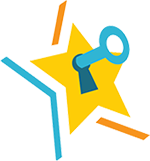 Instructors at the Harvard Bridge Program were looking for a way to elevate students’ employability and personal success skills in their workplace skill development classes. The students are university employees in the services and trades who enroll in classes to develop skills for their current jobs and increase their opportunities for advancement or future prospects. While classes have historically focused on technical and academic skills for the workplace, instructors for the Email in the Workplace and Digital Fitness classes came to the Personal and Workplace Success Skills Library in search of a way to elevate and build success skills, while also building continuity within the program.
Instructors at the Harvard Bridge Program were looking for a way to elevate students’ employability and personal success skills in their workplace skill development classes. The students are university employees in the services and trades who enroll in classes to develop skills for their current jobs and increase their opportunities for advancement or future prospects. While classes have historically focused on technical and academic skills for the workplace, instructors for the Email in the Workplace and Digital Fitness classes came to the Personal and Workplace Success Skills Library in search of a way to elevate and build success skills, while also building continuity within the program.
Instructors chose the Employability Skills Framework because they found that it provided inspiration for integrating skills into both classes. They also selected lessons and resources from SkillBase and Rumie Learn Bytes. Because many students are also working on their English skills, instructors combined the new Employability Skills with competencies from the Pearson English for Employability Framework.
Using the Employability Skills Framework in an intentional way has provided instructors with “a whole new way to think about shaping their lessons and choosing relevant materials”, as one instructor reflected.
To determine where to start, instructors facilitated conversations with students to identify which skills were most important to them. Students articulated that the skills of personal responsibility crossed many components of their lives, personally, professionally, and academically. Instructors cross-walked this to the Personal Qualities category of the framework, which includes responsibility, self-discipline, integrity, and initiative. In the Digital Fitness class, the instructor acknowledged and celebrated when students took initiative or persevered through challenges, such as reaching out to the IT office to resolve a computer issue or asking for help on an assignment. Students reflected that having a growth mindset and personal responsibility is essential in this class, since they noted that they have “a fear of failure,” find computers “intimidating,” and recognize that “learning the language around computers is challenging.”
Students also practiced these skills while simultaneously gaining technical knowledge, such as using a self-assessment to evaluate their own email writing skills.
After completing the pre- and post-self-assessment in the Email Writing for the Workplace class, one student said: “I have never considered before an objective way to evaluate myself. The provided tools helped very much to analyze my development.”
Students took turns volunteering to lead the class, teaching their peers new content based on articles they had read as homework, taking initiative and building leadership.
Many students in this program have academic and career goals. Pursuing these goals will require responsibility, initiative, advocacy, and discipline, all skills drawn directly from the framework. Bridge students and teachers are aware of how essential these skills are, and by integrating these new resources that prompt students to identify, name, and develop the skills into their program, students will pursue their goals better equipped to succeed.
